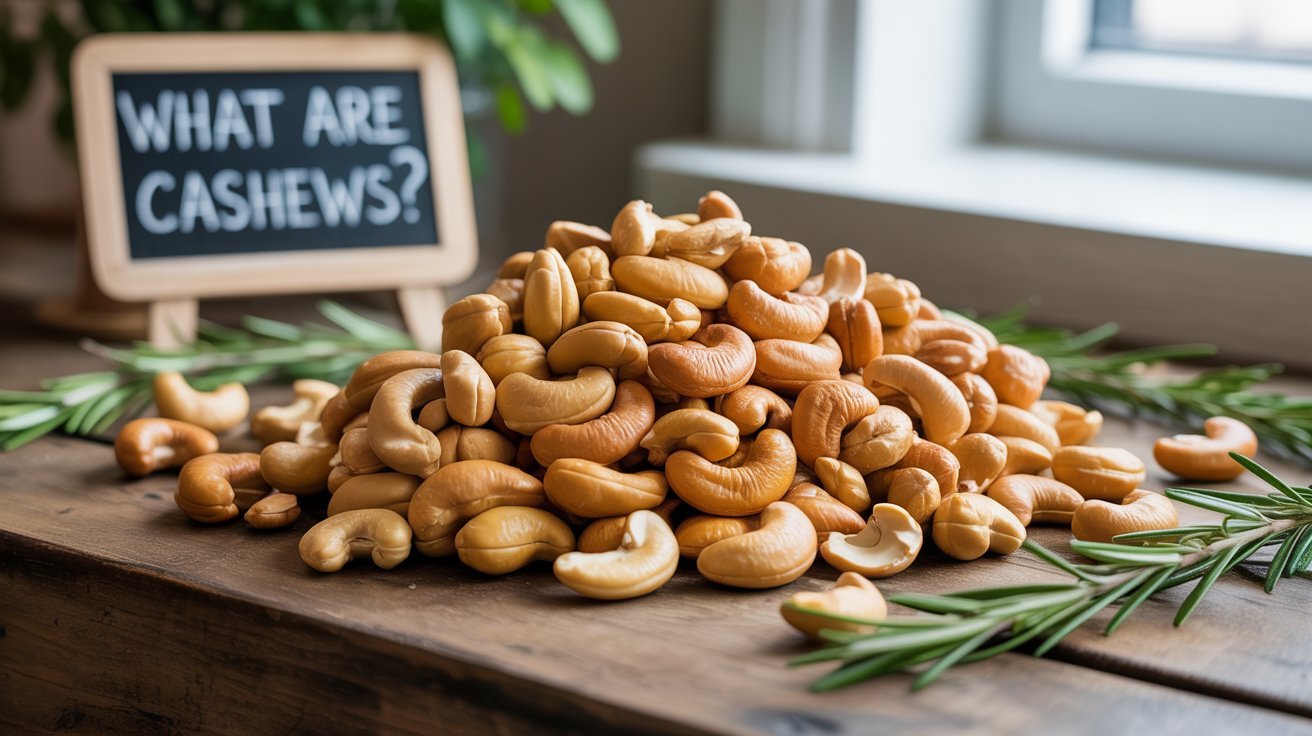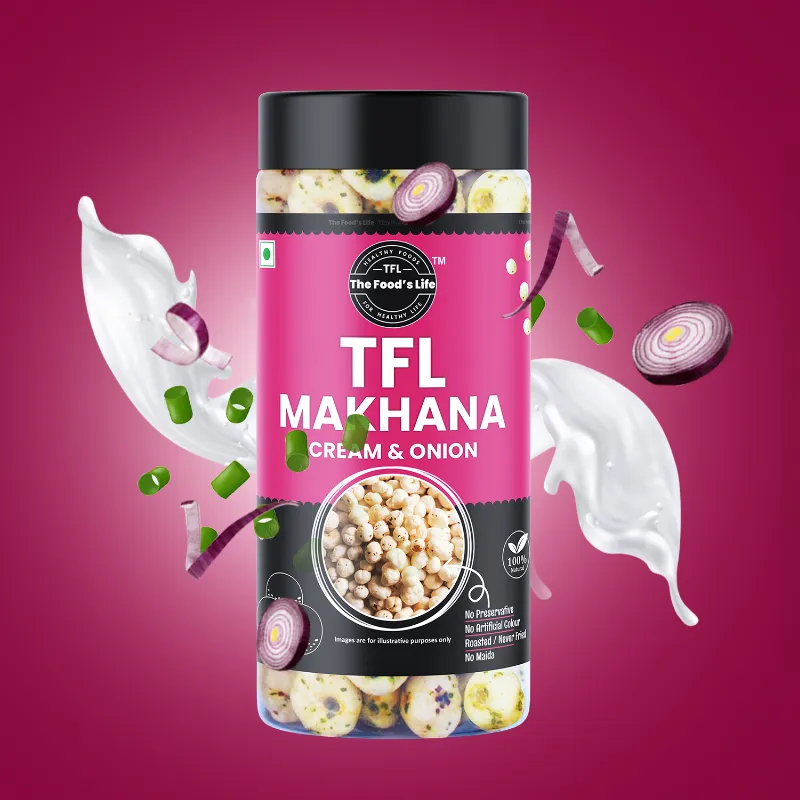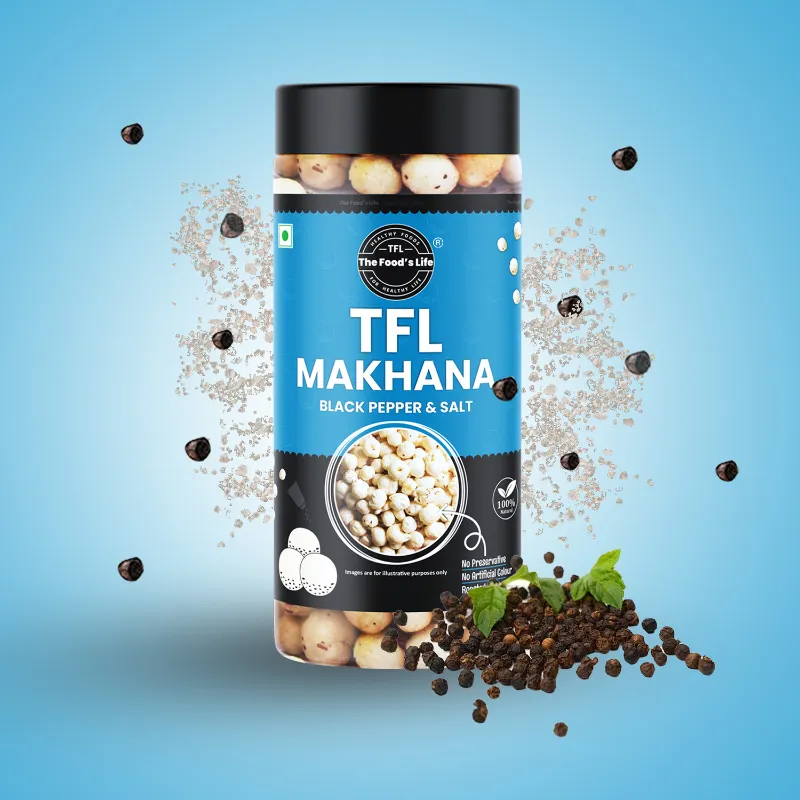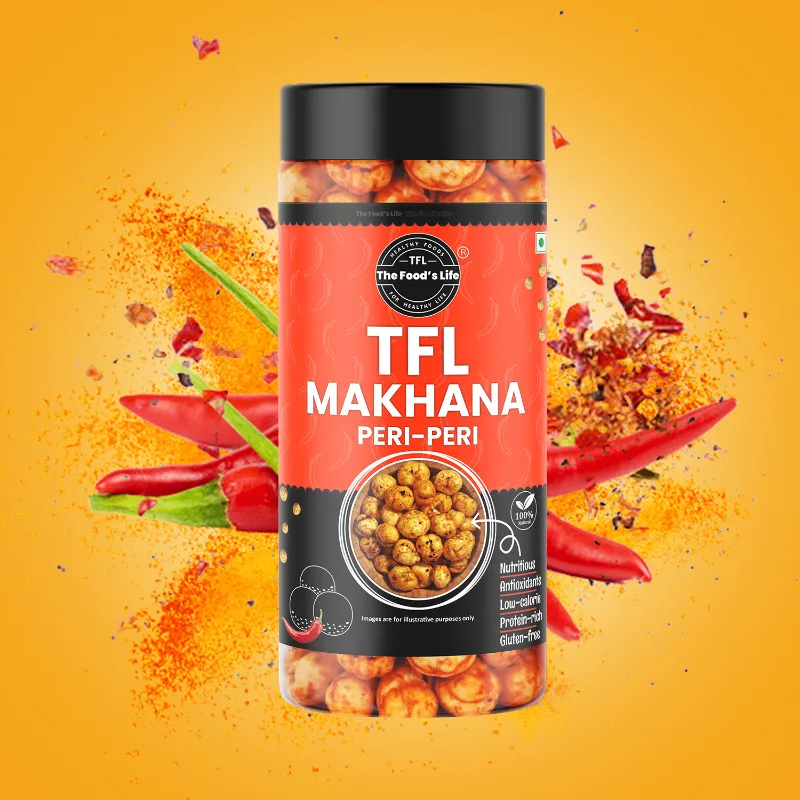Cashews are a widely-consumed kidney-shaped nut with a delicious buttery taste, and with extreme versatility in sweet and savory recipes. Cashews are technically seeds from the cashew apple but have been enjoyed in Indian homes and cuisine throughout the world for generations. Whether you are eating them as a crunchy snack food or blending them into a creamy sauce, cashews are nutritious, packed full of healthy fats, protein, magnesium and antioxidants that contribute to overall health and wellness.
When you look in the grocery store, you will find raw cashews which are great for making perfectly smooth dairy-free alternatives like cashew butter and vegan cheese and also find specially marked "phool" cashews which are larger and more indulgent, often used in festive recipes and gourmet meals. Ultimately, cashews are just a tasty snack food; they are also a powerful nutritional food that supports heart health, digestion, and add texture and richness to an endless number of recipes.
Cashews Explained – More Than Just a Popular Snack
Cashews are one of the most popular types of nut around the world, both for their rich, buttery flavor, and creamy density. However, if you dig deeper, you’ll find cashews have more to offer than a simple treat—they are a nutritional powerhouse stacked with healthy fats, protein, vitamins, and minerals. Cashews can be enjoyed as raw cashews, roasted cashews and also as premium phool cashews. Cashews too, have established a special presence in food around the world due to its versatility. From traditional Indian sweets, and dairy-free sauces and other snacks, cashews offer tremendous culinary and health advantages that are a must-have in your pantry!
Are cashews really nuts?
While we commonly refer to cashews as nuts, they are technically seeds. Cashew nuts grow outside the fruit, known as the cashew apple, from a cashew tree. Cashew nuts are also in the same family as mangoes and pistachios and are considered a ‘seed’ botanically because they do not grow inside the interiors of a fruit like a true nut.
Here’s a quick comparison:
This unique growth structure sets cashews apart and contributes to their unique taste and texture.
Understanding the cashew fruit and shell
Cashews grow from the cashew apple, a bright colorful and juicy fruit that contains vitamin C but is perishable and seldom exported. A cashew nut shell containing the edible cashew seed attaches to the bottom of the seed.
Cashew shells have a toxic resin called urushiol, the same irritant in poison oak, and thus raw cashews that you buy in grocery stores are steamed in order to safely remove the shell and remove the toxins. The processing consists of the following:
- Harvest cashew apples/nuts.
- Separate the nut from the apple.
- Roast or steam the shell in order to put off the toxins.
- Shelling and peeling (form the cashew) in order to get to the edible cashew.
The laborious shelling process means that cashews are one of the most labor-intensive nuts to produce, which is the reason premium grades are prized, such as phool cashews (the largest size and highest quality).
Why cashews are loved globally
There’s no denying how popular cashews are across cuisines and cultures, and for several reasons.
Cashews are a unique blend of taste, nutrition, and cultural significance which makes them a loved superfood.
The Journey of Cashews from Tree to Table
Cashews take an exciting path from tropical orchards to the tables in households throughout the world. Most consumers snack on cashews in their most simple form when very few understand the complex and labor-intensive process that transforms a raw cashew nut encased in a toxic shell to the tasty phool cashews found in high-end stores. Once you learn what it takes to turn cashews from scratch into our enjoyment, you will appreciate all the labor and artistry behind every cashew you eat.
Where do cashews grow?
Cashews grow in tropical climates and are primarily grown in India, Vietnam, Brazil, and in a few African countries too. These places have the temperatures and sandy soils that cashew trees thrive in.
Here’s a list of major cashew-producing regions:
How cashews are harvested and shelled
The cashew harvesting process is detailed and labor intensive. When the cashew apple is mature and drops to the ground, farmers take the cashew nut away from the fruit. Cashews are unique in that, unlike other nuts, they grow outside of the fruit; they are attached to the base of the apple.
Once collected from the earth, cashew nuts are collected and put through a shelling process with multiple steps:
Due to the very detailed shelling and peeling process of raw whole broken cashew nuts (also known as phool cashews) premium whole nuts are sold at a higher price due to their separate nature.
From raw cashews to roasted perfection
Once it's out of the shell, cashews are ready to eat (after steaming.) The cashew can either just be eaten as-is, or you can choose to roast a cashew to give it more flavor and more crunch.
- Dry Roasted: Just the cashew nut roasted without any added oils, provides the most natural nutty flavor.
- Oil-Roasted: Sitting in a vat, cashews are deep-fried in oil which helps create an extra crispy article that's typically found in salted and or spiced snacks.
- Seasoning: Roasted cashews can be seasoned with salt, spices, or sweet coatings depending on the culinary traditions.
On special occasions, or as a premium snack, phool cashews are roasted, then served as a delicacy as the size, feel, and taste is distinguishable and special.
Are raw cashews truly raw?
When we think of cashews, most of us have the image of a creamy and crunchy nut that we've eaten as a snack or added to a recipe. But, the word “raw” in the cashew context is a bit misleading. Before eating cashews raw, it's important to understand what “raw” means in the context of raw cashews, the differences between phool cashews, and how to prepare them for the most health benefits.
Health benefits of raw cashews
Raw cashews are a nutritional powerhouse loaded with essential vitamins and minerals that offer numerous health benefits. Here’s why incorporating raw cashews into your diet can be beneficial:
Cooking and soaking tips for raw cashews
To make the most of the benefits of raw cashews and to enhance digestion, soaking or lightly roasting them is best practice before consuming. Here are some points to consider when preparing raw cashews: Soaked vs. Roasted
Nutritional Power of Cashews – A Heart-Healthy Superfood
When finding out what cashews are, there is no denying that creamy, kidney nuts are a tasty treat, however they are also heavy hitters nutritionally. Casual eaters of raw cashews, using cashews in recipes, or premium phool cashews, their nutrient density makes them an essential food for heart-healthy diet. Cashews are packed with minerals, healthy fats and antioxidants for overall wellness.
Cashew nutritional facts and key vitamins
Cashews are packed with a variety of nutrients that support multiple functions in the body. Here’s a nutritional snapshot for a 1-ounce (28g) serving of cashews:
Health benefits of eating cashews regularly
Adding cashews to your daily diet can provide a number of health benefits. Here are our reasons why health enthusiasts and nutritionists suggest making cashews a regular part of your diet:
Both raw cashews and phool cashews have these benefits. Though, phool cashews are more commonly saved for when we're celebrating something special (weight management, or for some of us, for special occasions). Plus, when packaged, phool cashews are typically larger and premium quality.
Cashews and heart health: What the science says
Multiple studies have shown cashews are good for the heart. They are rich sources of monounsaturated and polyunsaturated fats which help lower LDL (bad) cholesterol) and increase HDL (good cholesterol) levels. Furthermore, cashews are rich in magnesium which help maintain the blood vessels and control blood pressure.
Key findings from research:
- A study conducted in the Journal of Nutrition showed moderate intake of cashews positively changed lipid profile and mitigated the risk of cardiovascular diseases.
- The heart disease inflammation and oxidative stress for which cashews are rich in essential fatty acids, are raw cashews when included in a balanced diet.
- Phool cashews which are dry roasted without the addition of oil are heart friendly and can be enjoyed when taken in moderation.
To conclude, the intake of cashews is a great addition for the good of the heart and overall well being as they are foods of science and taste.
Buying, Storing, and Understanding Phool Cashews
When you look for what are cashews, you'll likely run into phool cashews, which are the highest quality type of cashews available. They are known for their beautiful size and high quality. Whether you're guilty of constantly eating cashews for no reason, holding a celebration, or throwing them in your baked goods, it is good practice to understand how to choose and store the phool cashew variety so you can enhance your experience with this extremely healthy superfood. Whether you enjoy raw cashews or roasted, phool cashews are by far your best option in the nut category! When you want nuts, always consider phool cashews!
What makes phool cashews different?
The highest breeding type of cashew is known as the phool cashew, and due to their size, shape and quality they have earned this top designation. The word "phool" means "flower" in Hindi, which describes their puffed shape compared to regular cashews and the full size of the phool cashew makes them appear almost flower-like!
Here’s what sets phool cashews apart:
Phool cashews are especially preferred during festive seasons, weddings, or for gourmet recipes where presentation and taste matter.
Where to buy premium phool cashews
Phool cashews are a specialty product, so you can only find them in select stores and online. Here are some places to find premium-grade phool cashews:
- Specialty Dry Fruit Stores: your local premium dry fruit and nut shops will often carry high-quality phool cashews, particularly during events and holidays.
- Organic and Health Food Stores: Many health food stores have stock of standard raw cashews, but they also carry phool cashews from ethical and sustainable agricultural practices.
- Online Retailers: Prime sellers online, such as Amazon, Bebeburp, BigBasket, or the many local gourmet websites will have stock of phool cashews with quality certifications.
- Wholesale Dry Fruit Markets: If you happen to live in or are visiting places like Mumbai, Delhi, and Chennai, there may be dry fruit wholesale markets where you can find phool cashews in bulk and competitive pricing.
When shopping for phool cashews, always check:
- Grade (premium is anything W180 or W210)
- Packaging date and freshness
- Certificates (organic, fair-trade, and so on)
Best storage tips for keeping cashews fresh
Cashews, including raw cashews and phool cashews, are sensitive to moisture, heat, and light, which can cause them to turn rancid. Proper storage is crucial to preserve their taste and nutritional value.
Here are some best practices for storing cashews:
Sustainability and Ethics Behind Cashew Farming
When looking into what cashews are, then we have to understand not just nutritional, but environmental and ethical considerations as well. Cashew farming is a livelihood for millions of people, certainly several million in places like India, Vietnam, and Africa. On the other hand cashew farming also has its issues to deal with concerning environmental impact, and labor policies regarding sources and sustainability. Thus, from raw cashews to luxury phool cashews, ethically and sustainably done cashew farming creates positive benefits for not just the consumer, but also farming communities needed for consuming the sustainably sourced product.
Cashew farming and environmental impact
Most people consider cashew trees to be good for the environment, especially since they are resilient and drought tolerant, and they typically require less water than other nuts like almonds. But the issue is that there is growing demand for cashews around the world meaning that the environmental factors can not be overlooked.
Key environmental impacts of cashew farming:
Ethical sourcing and fair trade practices
Every packet of raw cashews, or the finest phool cashews, comes from long hours of labor. There is a significant amount of time and effort involved in harvesting, shelling, and peeling the cashew nut. Some manufacturers and facilities face scrutiny for low wages, substandard working conditions and their environmental practices, including worker protections from the harmful cashew shell oil.
To address the above challenges, many organizations and partnerships are providing tools for ethical sourcing and fair trade practices such as:
When consumers elect to purchase ethically sourced cashews, they join a sustainable and ethical path which invests in better livelihoods for farmers and workers.
Supporting sustainable cashew brands
As awareness about sustainability grows, consumers are seeking brands that align with ethical and eco-friendly values. Whether you’re buying raw cashews for cooking or indulging in phool cashews during festive seasons, supporting brands that prioritize sustainability makes a difference.
Frequently Asked Questions
Q1. What are cashews and where do they come from?
Cashews are kidney-shaped seeds that grow outside the cashew apple, a fruit of the cashew tree. They are mainly cultivated in India, Vietnam, Brazil, and parts of Africa.
Q2. Can I eat raw cashews straight out of the bag?
Store-bought raw cashews are safe to eat as they are steamed to remove toxins. However, cashews straight from the tree shell are toxic and must be processed before consumption.
Q3. What’s special about phool cashews?
Phool cashews are premium-grade cashews known for their large size, smooth texture, and rich taste. They are considered top-quality and are often used in festive recipes and gourmet dishes.
Q4. How many cashews can I eat per day?
A healthy portion is about 18-20 cashews (1 ounce) per day. Moderation is key, as cashews are calorie-dense even though they offer numerous health benefits.
Q5. Are cashews good for heart health?
Yes, cashews contain heart-healthy monounsaturated fats, magnesium, and antioxidants that can help lower bad cholesterol and support cardiovascular health.
Q6. Are phool cashews better than regular ones?
Phool cashews are superior in size and appearance, making them ideal for gifting and special dishes. Nutritionally, they are similar to regular cashews but offer a more premium eating experience.
Q7. Can I use cashews in vegan cooking?
Absolutely! Raw cashews are commonly used in vegan recipes to make dairy-free creams, sauces, cheeses, and desserts due to their creamy texture when blended.
Conclusion – Add the Goodness of Cashews to Your Diet Today
If you’ve been wondering what cashews are beyond just a snack, it’s clear that these nutrient-packed seeds are a must-have in every kitchen. From their impressive health benefits to their rich, creamy taste, cashews deserve a permanent spot in your pantry. Whether you’re looking for a healthy snack, a dairy-free alternative, or an ingredient that elevates both sweet and savory dishes, cashews have got you covered.
Why cashews deserve a place in your kitchen
Cashews are loaded with heart-healthy fats, plant-based protein, essential minerals, and antioxidants, making them a perfect addition to a balanced diet. Their naturally mild and creamy flavor pairs well with a variety of cuisines, and they serve as a healthier substitute for processed snacks. Whether it’s raw cashews for a smoothie or phool cashews for a festive dessert, these nuts fit effortlessly into every meal plan.
Versatile, nutritious, and easy to use
One of the biggest reasons cashews are loved globally is their versatility. You can roast, soak, blend, or simply munch on them straight from the jar. From vegan cheese to rich curries and protein-packed snacks, cashews can be used in countless ways while delivering top-notch nutrition in every bite.
Start exploring raw and phool cashew recipes
Now is the perfect time to explore the world of raw cashews and phool cashews. Try adding soaked raw cashews to your smoothies for a creamy texture or whip up a homemade cashew butter for a nutritious spread. For special occasions, indulge in dishes made with phool cashews, whose rich taste and superior quality can turn simple recipes into gourmet experiences.






